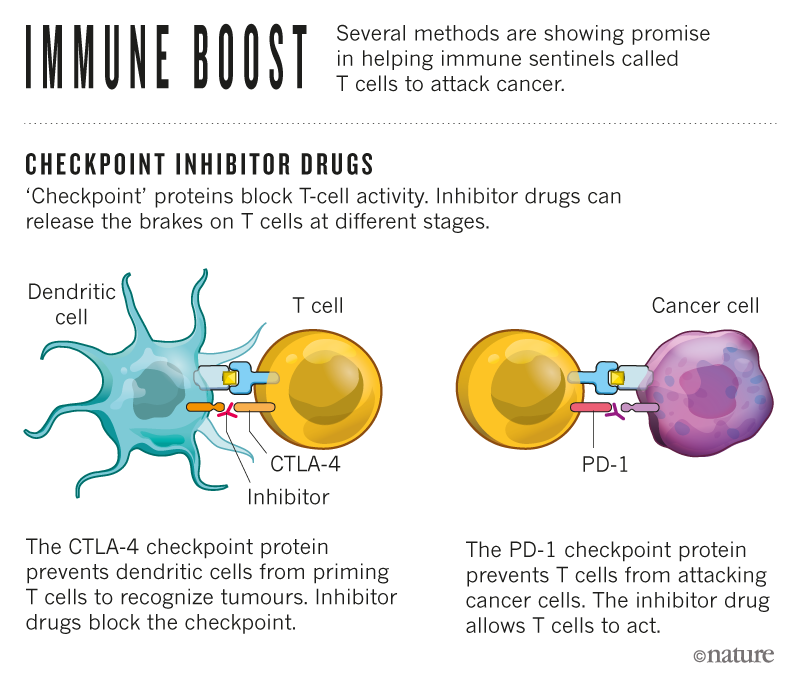These scientists brought a new way in targeting and treating cancer. Chemotherapy and radiation are very effective ways in treating cancer but are also harmful and have horrible side effects. This is a new type of treatment that is using your own bodies cells to fight and destroy pathogenic cells. It is interesting to see that these T-cells only deregulated specific types of cancer cells. Perhaps specific immune cells can be used to kill specific types of pathogens? Immunotherapy its an interesting type of cancer therapy and perhaps ground breaking. It could be possible that antibodies are used to block receptor sites on cancer cells not allowing them to metastasis any longer. Although, I don't see this being a long-term cancer therapy solution (still a believer in gene therapy), it seems to be one of the most effective ones right now.
Monday, November 19, 2018
Cancer immunologists scoop medicine Nobel prize
Two scientist, James Allison and Tasuku Honjo, won the 2018 nobel prize in Physiology or Medicine for their work in immunotherapy. The two scientist demonstrated how protein on immune cells can be used to manipulate the immune system to attack cancer cells. Their research mostly focused on "check point" proteins, usually known as cyclin dependent kinases. The specific protein they focused on was CTLA-4, which essentially suppresses the immune cells called T-cells until they are needed. They then developed an antibody that could bind to CTLA-4 removing these brakes on T-cell activity and allowing them to attack cancer cells. In 2010, it was found to have a very good effect on people with advanced melanoma. Another type of T-cell protein, PD-1, was found to act as a brake on the immune system but by a different type of mechanism. However, removing the brake on this protein revealed that this is extremely effective against several different types of cancer including a major killing one, lung cancer. Some patients with mastic cancer went into long-term remission, which raised the question is this a possible mode of cure? Furthermore, targeting both CTLA-4 and PD-1 together has been shown to be effective in treating lung and renal cancers, lymphomas and melanoma.
Labels:
"cancer",
"Immunology",
CTLA-4,
cyclin dependent kinases,
immunotherapy
Subscribe to:
Post Comments (Atom)

No comments:
Post a Comment